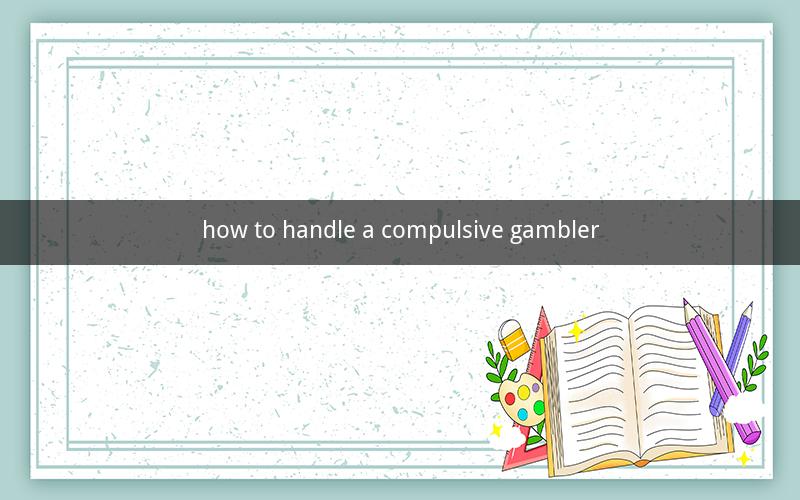
Table of Contents
1. Understanding Compulsive Gambling
2. Recognizing the Signs of Compulsive Gambling
3. Communicating with a Compulsive Gambler
4. Encouraging Professional Help
5. Supporting the Gambler in Recovery
6. Setting Boundaries and Limits
7. Coping with Emotional Impact
8. Legal and Financial Consequences
9. Building a Support Network
10. Long-Term Recovery and Prevention
1. Understanding Compulsive Gambling
Compulsive gambling, also known as problem gambling, is a behavioral addiction characterized by an inability to control the urge to gamble. It is a complex disorder that affects individuals of all ages, backgrounds, and socioeconomic status. Understanding the nature of compulsive gambling is crucial in providing appropriate support and guidance to those struggling with this addiction.
2. Recognizing the Signs of Compulsive Gambling
Identifying the signs of compulsive gambling is the first step in addressing the issue. Common signs include secretive behavior, preoccupation with gambling, borrowing money to finance gambling, lying about gambling activities, and experiencing mood swings or irritability when unable to gamble.
3. Communicating with a Compulsive Gambler
Communication is key when dealing with a compulsive gambler. It is important to approach the conversation with empathy and support, rather than judgment or anger. Encourage open dialogue and listen actively to their concerns and feelings. Avoid confrontational language and focus on expressing your love and concern for their well-being.
4. Encouraging Professional Help
Seeking professional help is essential for a compulsive gambler to overcome their addiction. Encourage them to consult with a therapist or counselor specializing in gambling addiction. Therapy can provide personalized strategies for managing cravings, addressing underlying issues, and developing healthy coping mechanisms.
5. Supporting the Gambler in Recovery
Supporting a compulsive gambler in recovery involves understanding their struggles and providing ongoing assistance. Attend support group meetings together, such as Gamblers Anonymous, to connect with others who have faced similar challenges. Encourage them to establish a routine, engage in healthy activities, and seek emotional support from friends and family.
6. Setting Boundaries and Limits
Setting boundaries and limits is crucial to prevent the compulsive gambler from relapsing. Establish clear rules regarding financial management, access to gambling opportunities, and communication. Encourage them to create a budget and monitor their spending habits. Consider seeking legal assistance to restrict access to gambling websites or establishments.
7. Coping with Emotional Impact
Compulsive gambling can have a significant emotional impact on both the gambler and their loved ones. It is important to seek support for emotional well-being. Consider attending therapy sessions together or seeking support from support groups for family members of compulsive gamblers. Remember to take care of your own emotional needs during this challenging time.
8. Legal and Financial Consequences
Compulsive gambling can lead to severe legal and financial consequences. It is crucial to address these issues promptly. Encourage the gambler to seek legal advice to understand their rights and obligations. Work together to develop a plan to manage outstanding debts and prevent future financial problems.
9. Building a Support Network
Building a strong support network is essential for the gambler's recovery journey. Encourage them to connect with friends, family, and professionals who can provide ongoing support. Consider creating a support team that includes therapists, counselors, and support group members. Maintain regular communication with the support network to ensure the gambler remains on track.
10. Long-Term Recovery and Prevention
Long-term recovery from compulsive gambling requires ongoing commitment and vigilance. Encourage the gambler to continue attending therapy sessions, support group meetings, and engaging in healthy activities. Help them develop coping strategies to deal with triggers and cravings. Educate themselves and their loved ones about compulsive gambling to prevent future relapses.
Questions and Answers:
1. What is compulsive gambling?
Compulsive gambling is a behavioral addiction characterized by an inability to control the urge to gamble, leading to significant negative consequences in various aspects of life.
2. How can I recognize the signs of compulsive gambling?
Signs of compulsive gambling include secretive behavior, preoccupation with gambling, borrowing money, lying about gambling activities, and experiencing mood swings when unable to gamble.
3. How should I communicate with a compulsive gambler?
Approach the conversation with empathy and support, avoiding confrontation. Listen actively and express your love and concern for their well-being.
4. What is the role of professional help in treating compulsive gambling?
Professional help, such as therapy or counseling, can provide personalized strategies for managing cravings, addressing underlying issues, and developing healthy coping mechanisms.
5. How can I support a compulsive gambler in recovery?
Support the gambler by attending support group meetings, encouraging healthy activities, and providing emotional support from friends and family.
6. What are the legal and financial consequences of compulsive gambling?
Compulsive gambling can lead to legal issues, such as fraud or theft, and significant financial problems, including outstanding debts and bankruptcy.
7. How can I cope with the emotional impact of compulsive gambling?
Seek support for emotional well-being through therapy sessions, support groups, and maintaining a strong support network.
8. How can I prevent relapse in a compulsive gambler?
Encourage the gambler to continue therapy, support group meetings, and develop coping strategies for dealing with triggers and cravings.
9. How can I build a support network for a compulsive gambler?
Encourage the gambler to connect with friends, family, therapists, counselors, and support group members to provide ongoing support.
10. What is the importance of long-term recovery and prevention in compulsive gambling?
Long-term recovery requires ongoing commitment and vigilance. Encourage the gambler to continue therapy, support group meetings, and develop coping strategies to prevent future relapses.